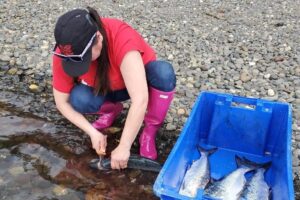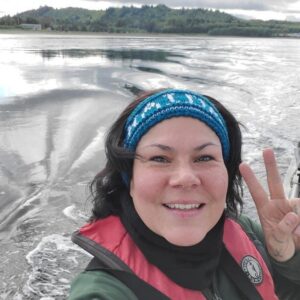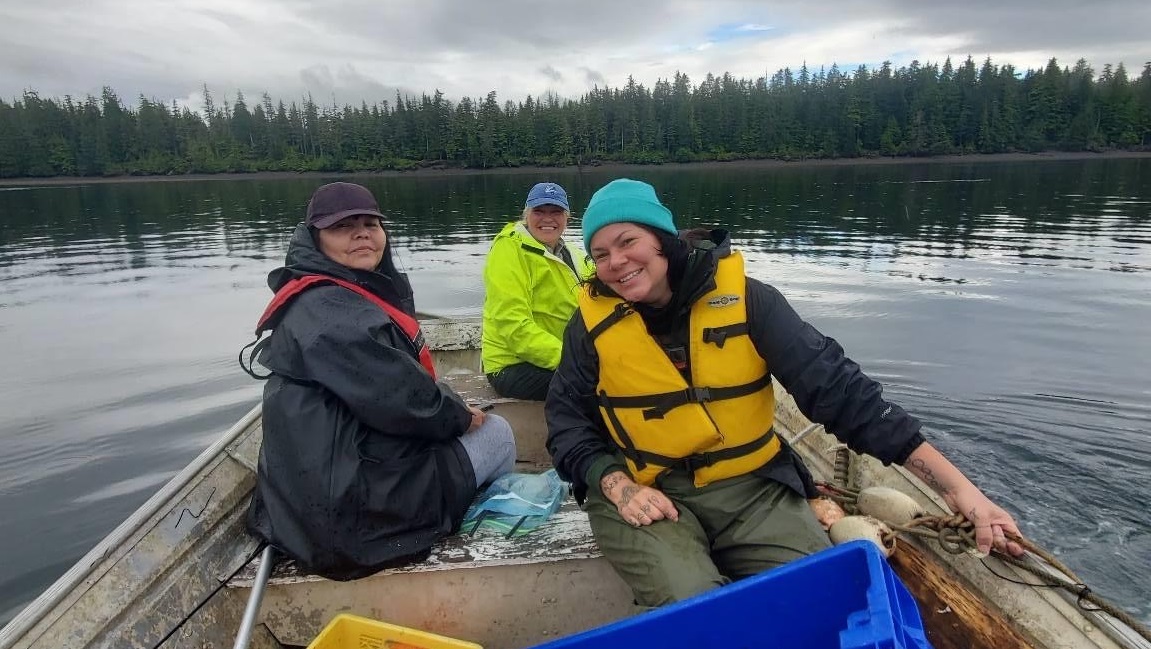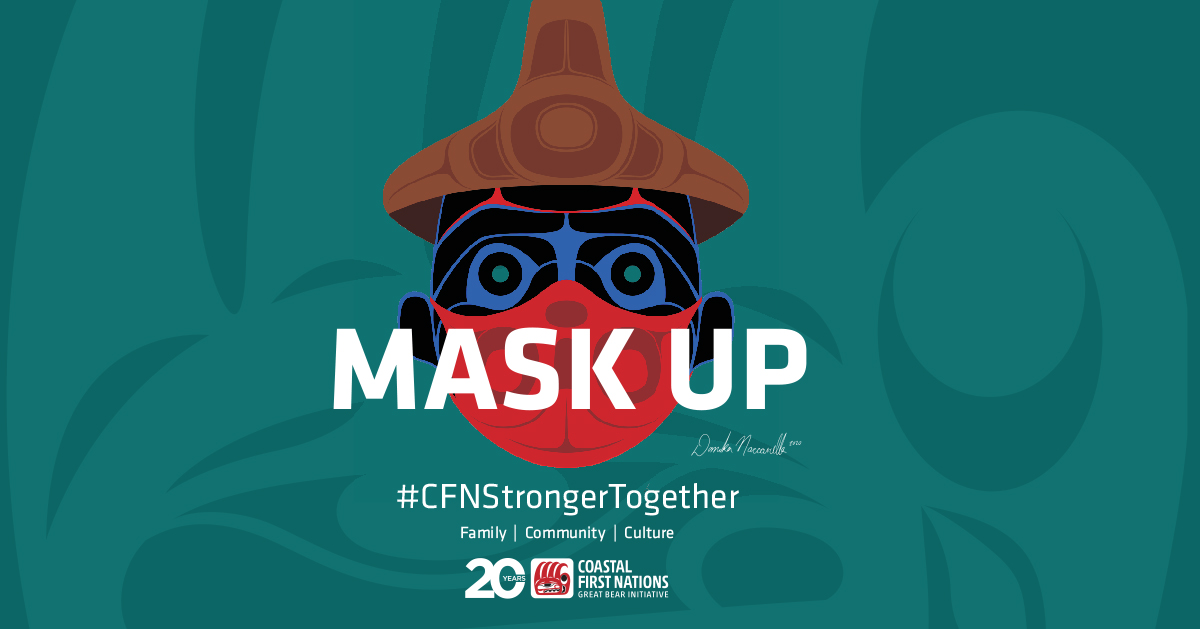The reopening of two sport fishing lodges in Haida waters contravenes a state of emergency in effect by the Haida Nation and poses risks for public health, food security and safe access to healthcare, say members of Gaandlee Guu Jaalang (Daughters of the Rivers). The women are responding by upholding their inherent right to occupy their traditional lands at two ancient villages.
“By occupying our land and waters, we’re upholding our inherent right to protect our land and sea,” says Adeana Young, spokesperson for Gaandlee Guu Jaalang. “All our communities are in support of keeping Haida Gwaii closed because we’re not only worried about our elders and our young children, we’re worried about other people too, who could be put at risk. There’s a high survival rate with COVID-19, but the after-effects can be quite substantial.”
The re-openings of Queen Charlotte Lodge and the West Coast Fishing Club have increased boat traffic during a fishing season when many Haida – who have lost income due to the pandemic – are relying on harvests of crab, halibut, salmon and other traditional foods to supplement household groceries.

Daughters of the Rivers say they are upholding rights to occupy lands at Sk’awas and Kung, located less than 10 kilometres away from Queen Charlotte Lodge. A video posted mid-July by the group says about 40 boats belonging to the lodge were on the water without the consent of the Haida Nation.
“I don’t feel we are safe on the water with that amount of lodge boats. There’s a lot of sport fishing boats out there with bigger motors and when anyone is out there to set the nets, we don’t have boats that are comparable in size,” says Young. “Our concern is the amount of lodge traffic out there that is pushing our boats into areas that can put them in harm’s way.”
Haida leadership are working to protect community health and food security, she says, and have processes in place to assess the reopening the island. “All businesses must respect these processes.”
The group says it’s not known where guests may be stopping-over as they fly to the fishing lodges. This raises concerns about safe access to healthcare resources for Island residents. “We have our people who have put their medical travel on hold since the pandemic, and now our members are traveling through that trail of risk.”
Young says planeloads of non-residents potentially expose Haida members to COVID-19 in a remote community with only two ventilators and limited health resources.

“How can these people not understand the negotiation between corporate profit margin and the safety and well-being of human people?” she asks. “That’s the reality we’re facing right now. And as Indigenous people, it strikes a chord even more so in regard to our health and well-being.”
The lodge openings come as the provincial government encourages non-essential summer tourism travel for BC residents. In a press conference July 15, Dr. Shannon McDonald, acting chief medical officer for the First Nations Health Authority, acknowledged that some First Nations communities will choose not to welcome guests. “They are self-determining Nations and they can make those choices. And I am not going to disagree with them.”
With almost 95 per cent of Haida people wiped out by a smallpox epidemic purposefully introduced to Haida Gwaii, Young says, “we plan to survive this pandemic at all costs.”
“We’re not negotiating a profit margin, we’re negotiating our safety and well-being, and the survival of our culture as Indigenous people.”
As of July 15, a spike in COVID-19 cases in BC raised concerns after more than 20 new cases were recorded for the fifth time in six days. Four tourism sites in Kelowna were were linked to COVID-19 exposures. A release from Provincial Health Officer Dr. Bonnie Henry and Health Minister Adrian Dix says, “We are concerned about the increase in new cases in recent days as COVID-19 continues to silently circulate in our communities.”


